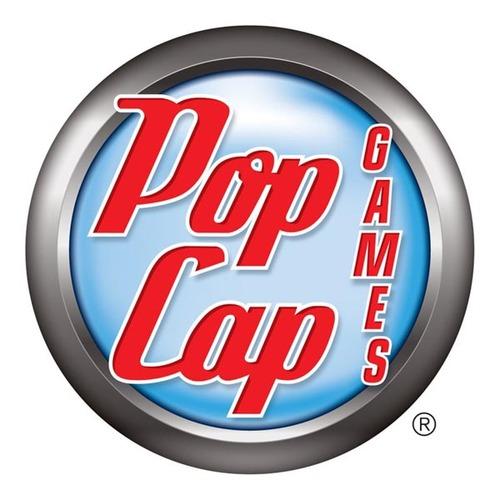PopCap高管谈公开招股进程及对休闲游戏看法
游戏邦注:本文为Gamasutra总编辑Chris Morris采访PopCap首席执行官David Roberts所撰稿件,内容主要涉及休闲游戏的兴起、公司信誉的提升及《宝石迷阵》的风靡等方面。
早在Rovio和Zynga等公司置身报刊头条之前,PopCap Games这家驻扎在西雅图的游戏公司就已凭借《宝石迷阵》和《Bookworm》等游戏赢得了大批的忠实粉丝,这让该公司在快速发展游戏市场占有相当重要的席位。
PopCap首席执行官David Roberts表示,“去年是几十年来游戏行业最关键的一年。”
“我们认为休闲游戏领域发生的两大变化是iPhone和Facebook/Zynga的诞生。事实上,我们很早就打了一场硬仗,就是说服50岁的妇女们玩游戏。如今一切都变得简单了。”
休闲游戏的风靡为PopCap带来了丰厚的营收。游戏邦获悉该公司去年的营收高达1亿美元,单在iPhone平台上的游戏销量就达到1000万份。
一路走来,该公司已经成为少数受硬核玩家群体欢迎的休闲游戏公司之一。但不久前“真正”的游戏玩家还未给予PopCap过多关注。
Roberts表示,“这一过程是循序渐进的。特别是新闻媒体,它们起初对我们都是持怀疑的态度。直到Valve将《幻幻球》和《半条命2》橙盒版绑定时,我们才开始建立起自己的信誉。我们并没有因此而赚到钱。但这让硬核游戏玩家开始改变他们的游戏习惯。”
如今,同对待Zynga和Rovio一样,很多人纷纷猜测PopCap将公开发售股票。游戏邦发现该公司虽然还没有正式采取行动,但已经开始为此做准备了。
PopCap已经逐步开始扩大其董事会,其中包括去年5月刚刚加入的科技元老Steve Raymund。游戏邦获悉,该公司2009年10月从后期投资公司Meritech Capital Partners融得了2250万美元的风险资金。
Roberts表示,“我觉得我们自己已经准备好了。但市场是否准备好了还有待进一步观察。目前我们处于有利地位。我对于公开招股持谨慎的态度,就像对待游戏发展那样。我们对此并不心急。”
如果最终公开招股没有实现,肯定会很多公司争相收购PopCap。游戏邦获悉,之前就有公司向PopCap提出收购请求,但都被该公司拒绝了。不过随着业内估价的攀升,新兴发行商将成为热切风险投资商的新宠,因此投机成份也就越来越多。游戏邦获悉,之前GDC上就传出很多有关Zynga与PopCap即将结盟的谣言。
Roberts并没有具体指明和其他公司的沟通细节,只是清楚表示公司仍在考虑各种选择方案。
Roberts表示,“只要提交了S12注册文件,就一定会有公司找上门来买你。我们的目标不是为PopCap找出路。而是为世界创造《Monopoly》和《Scrabble》之类的经典游戏。”
PopCap推出了很多颇有名气的游戏,但Robert表示公司短期内不会推出新IP。当被问及今年是否会推出新游戏时,他表示,“不要抱太大希望。”
但他表示,PopCap和其他发行商的运营模式不一样,公司希望能够在不同平台都推出不同版本的游戏。(游戏邦认为这就是为什么《植物大战僵尸》的DS版的和PC版功能不同。)
这是因为PopCap的粉丝并不像硬核玩家那样快速消化游戏,因此该公司并不存在不断推出新游戏或游戏续集的压力。
Roberts表示,“这就是相比硬核游戏而言,我喜欢休闲游戏的地方。在硬核游戏领域,开发商需要不断推出新的热门游戏。但就我们来说,《宝石迷阵》已经连续7年荣登沃尔玛畅销游戏榜单的前5名。我们拥有自己独特的一小片天地。但事实证明,好游戏就是好的游戏。”。(本文为游戏邦/gamerboom.com编译,转载请注明来源:游戏邦)
Interview: PopCap’s Roberts On Why ‘Good Games Are Good Games’
[Sister site Gamasutra's editor-at-large Chris Morris talks to PopCap CEO David Roberts about the rise of casual gaming, the company's credibility rise with Valve's Orange Box, and why Bejeweled's popularity rises from the fact that "good games are good games."]
PopCap Games, to borrow (and slightly mangle) a phrase from Barbara Mandrell, was casual when casual wasn’t cool.
Long before companies like Rovio and Zynga were dominating headlines, the Seattle-based development house was building a loyal following with titles like Bejeweled and Bookworm. And that gives it some perspective in this fast-growing market.
“Last year was the most pivotal in the gaming industry in a couple of decades,” says David Roberts, CEO at PopCap.
“The two things that have changed in the casual space, from where we sit, are the iPhone… and Facebook/Zynga. The fact is that we had the uphill battle of convincing 50-year old women that they could play games [in our early days]. Now it’s easy.”
The surge in casual has certainly helped PopCap fatten its coffers. The company hit revenues of $100 million last year and has sold 10 million games on the iPhone alone.
It has, along the way, become one of the few casual game companies that the core community has truly embraced. But it wasn’t that long ago that “serious” gamers didn’t pay a lot of attention to PopCap.
“That evolved over time,” says Roberts. “The press, in particular, was a bit skeptical of us. The credibility really started when Valve bundled that version of Peggle with The Orange Box. … We made no money off of that. But it was the start of how core gamers changed their gaming habits.”
Today, like Zynga and Rovio, there’s a lot of talk about a public offering for PopCap. And while the company still hasn’t filed the formal paperwork to start the process, it’s making a lot of moves in that direction.
PopCap has steadily been adding to its board, including tech veteran Steve Raymund last May. In October 2009, it received $22.5 million in venture capital funding from late-stage investment firm Meritech Capital Partners.
“I do think we’ll be ready internally,” says Roberts. “Whether the market is ready remains to be seen. … It has got to be right for us. … We’re as deliberate about going public as we are with game development. We’re in no hurry to do it.”
If an IPO isn’t ultimately in the cards, there are certainly plenty of suitors sniffing around the company. PopCap has received offers before, but turned them all down. But as valuations in the space have soared and new publishers have been the beneficiaries of eager venture capitalists, speculation has increased. At GDC, there were a lot of whispers about a possible PopCap/Zynga tie-up.
Roberts didn’t go into details about talks with any specific companies, but made clear that the company was still considering its options.
“Whenever you [talk about filing] an S12, you’re pretty much guaranteed that someone will come and try to buy you,” he says. “Our goal is not about an exit at PopCap. It’s about creating this legacy of games that mean as much as Monopoly and Scrabble to the world.”
PopCap has a wealth of well-known franchises, but Roberts indicates we won’t be seeing any new IP for a while. “Don’t hold your breath,” he says when asked if one might come out this year. And he declines comment altogether when the long rumored Yeti Train is brought up.
But PopCap doesn’t operate like other publishers, he notes. For one, the company tries to differentiate releases on different platforms. (That’s why the Plants vs. Zombies you play on your DS has features you won’t find in the PC version.)
And because its fans don’t devour games as quickly as the core does, there’s not the constant pressure to churn out new IP or completely new installments of its franchises.
“The thing I love about our business versus the core business is this,” says Roberts. “In the core business, you’ve got to get big hits out the door. … For us, Bejeweled has been at in the top five of Walmart’s best-selling titles for seven years now. I think we occupied a very interesting space. But the truth is good games are good games.”(Source:Gamesetwatch)








































 闽公网安备35020302001549号
闽公网安备35020302001549号